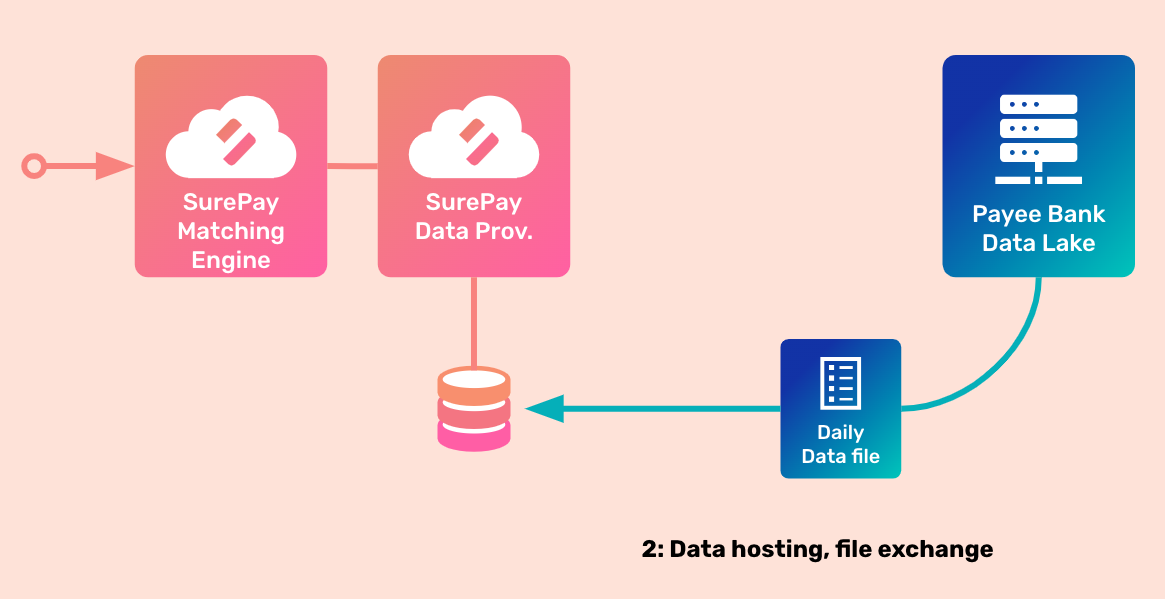VOP Responder Service
The SurePay Verification of Payee (VoP) service helps Payment Service Providers (PSPs) enhance payment security and reduce fraud by validating account ownership. As a Responding PSP, you are required to provide accurate and up-to-date account data to enable reliable matching for incoming verification requests.
The service compares the provided account holder's name and other identifying attributes against the records registered at your organisation, ensuring precise and timely responses.
This document outlines the integration requirements, data formats, and best practices to help you seamlessly implement and maintain your VoP responder capabilities.
The Data
The provided data consists of all known attributes of the account and account holder(s) that are relevant to the matching algorithm. The source within the PSP is typically one or more CRM systems or similar platforms. The data includes, among other attributes, the first and last names for personal accounts, or the legal name and trade names for business accounts.
Available Methods
The actual data is provided either online via an API or offline through batch-oriented data hosting. For online provisioning, the PSP must offer a real-time, highly available service to retrieve account data. For batch-oriented data hosting, the PSP must supply bulk data files daily, which SurePay stores in a local datastore for fast retrieval.
Option 1: Online Data Provisioning
This method provides the most accurate check results. Each time SurePay receives a request for one of your accounts, we retrieve the matching data in real time through your data provisioning API. The data we use is as up-to-date as you provide it to us.
However, this approach requires additional effort on your side, as a data provisioning API needs to be created.

Option 2: Offline Data Hosting
An alternative to real-time data provisioning is our offline hosting service. You provide us with a daily file containing the matching data (accounts, names, etc.). This approach can be a good option if you want to start responding quickly or do not yet have the technical capabilities to build a data provisioning API.

Next Steps
-
Decide which method you prefer. To assist in your decision-making process, we have provided more information on how the two different methods work in the following sections:
-
Continue to the specifications for your chosen method. Based on these specifications, you should be able to deliver account data by either providing a file over SFTP on a daily basis or exposing a RESTful API over HTTP, allowing the SurePay solution to access it with the required security and performance levels.